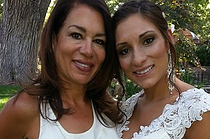
Information on Obtaining Your California Marriage License
- You do not need to be a California resident to marry in California
- Blood tests are NOT required to obtain a marriage license in California.
- Both parties must appear in person and bring valid picture identification to the County Clerk’s Office to apply for a marriage license in California. Valid picture identification is one that contains a photograph, date of birth, and an issue and expiration date, such as a state-issued identification card, drivers license, passport, military identification, etc. Some counties may also require a copy of your birth certificate.
- If you have been married before, you will need to know the specific date your last marriage ended, and how it ended (Death, Dissolution, Divorce or Nullity).
- Some counties may require a copy of the final judgment if your previous marriage ended by dissolution or nullity.
- Marriage licenses are valid for 90 days from the date of issuance. If you do not get married within 90 days, the license will no longer be valid. You must purchase a new license.
- The person solemnizing the marriage must return the original marriage license to the County Clerk or County Recorder as applicable within 10 days of the date of the ceremony. Addresses should be on the county site.
- You will NOT receive a copy of your marriage license after you have been married unless you request and pay for a certified copy from the County Clerk or County Recorder as applicable.
- ALL information on the marriage license MUST be legible, unambiguous and reproducible. DO NOT change any information on the license, cross out information, use white-out, etc., as that will require the payment for and issuance of a duplicate marriage license. Contact the County Clerk’s Office if you have questions about completing the marriage license and/or incorrect information contained on the marriage license.
- Fees vary from county to county, but on average the fee is around $90.00
